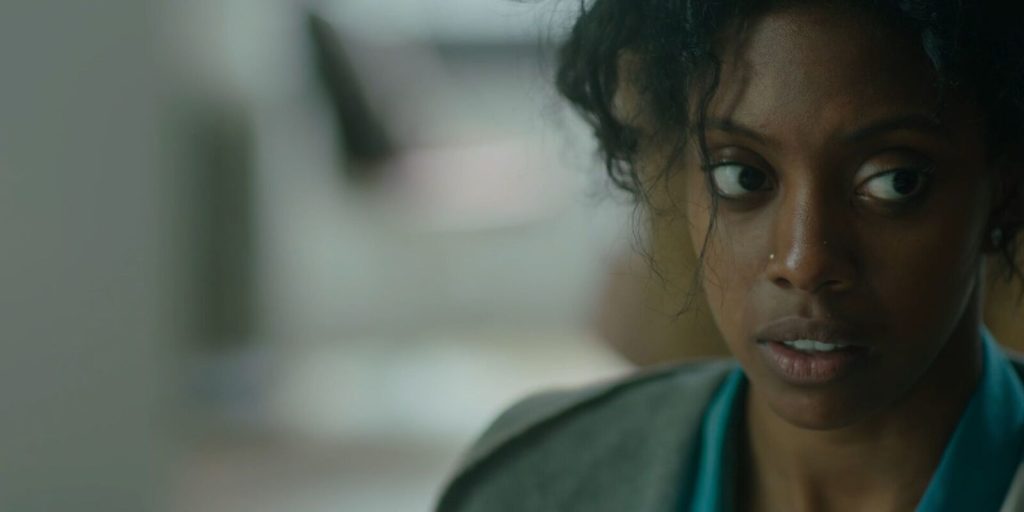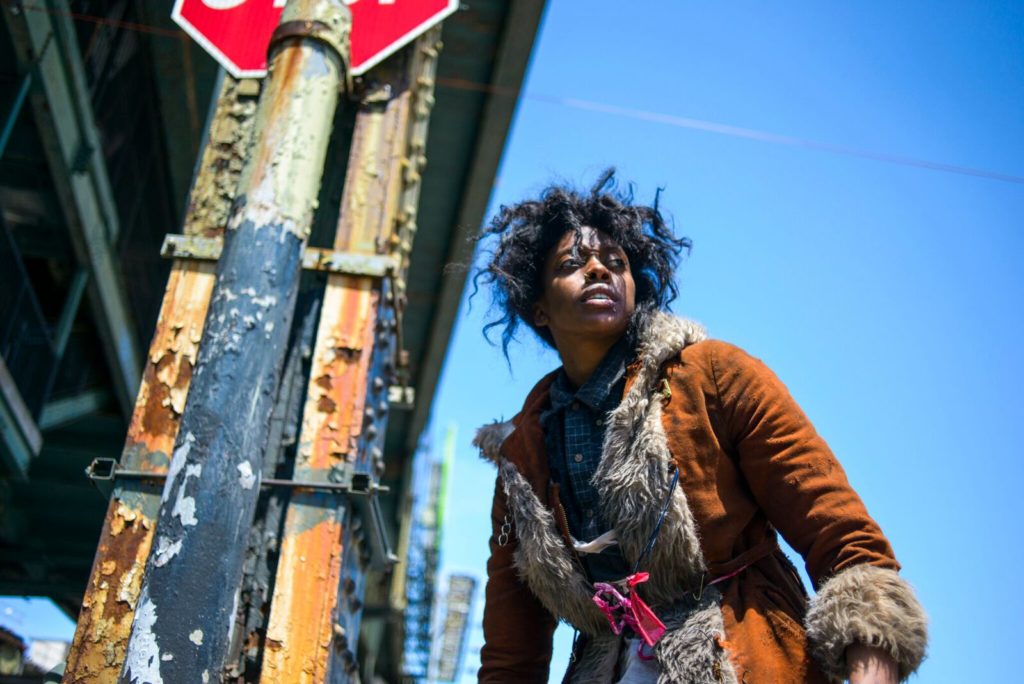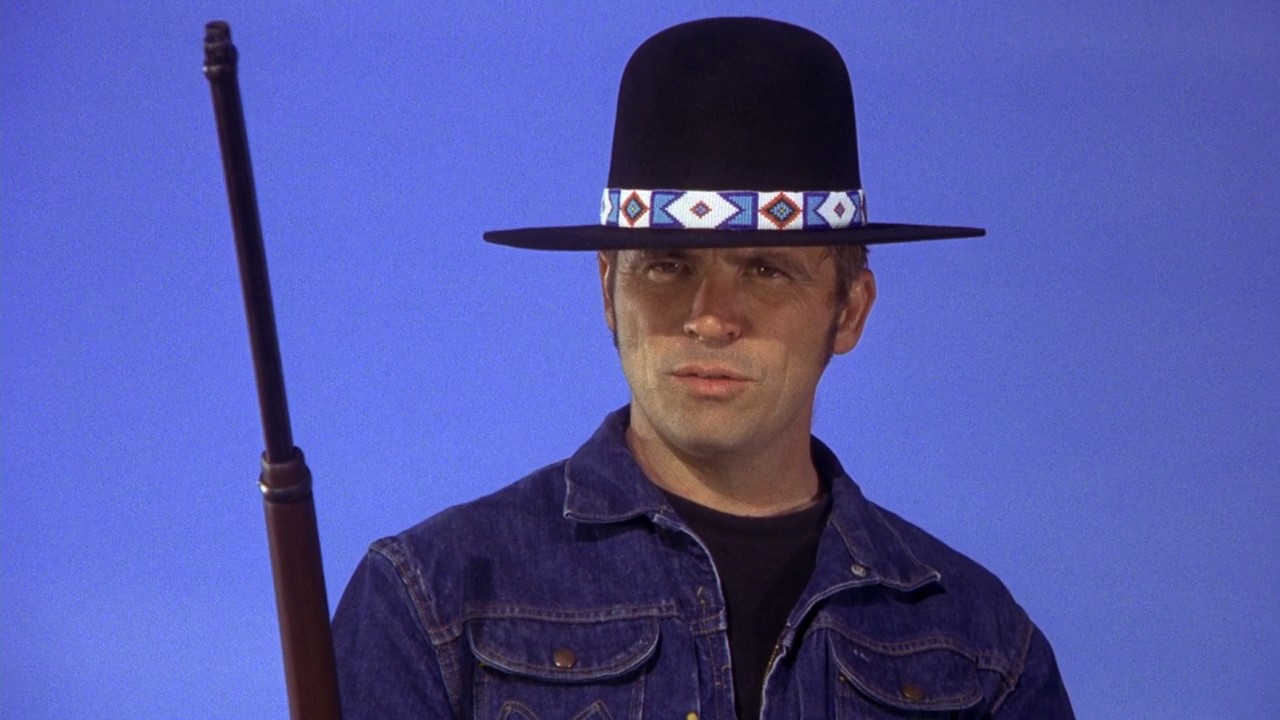
In the astonishingly brilliant Bikini Moon, actress Condola Rashad’s blazing performance ignites Milcho Manchevski’s provocative story, resulting in the Must See indie at Cinequest. A fictional movie crew discovers the potential star of their documentary project. That star is a mentally ill homeless women named Bikini. She says that she’s a military veteran and that she has a daughter. The documentarians see that her emotional volatility, with its sudden and extreme outbursts, makes for great drama. She’s also an enthralling raconteur with a gifted turn of phrase – and she’s beautiful.
Bikini is played by Condola Rashad in a performance so charismatic that it’s easy to see how the crew is seduced by her mesmerizing presence. These folks are way out of their depth with Bikini. They think she is their subject, but will she pull them, one by one, into her madness?
It turns out that Bikini really is a vet, and she has serious PTSD and, possibly, Military Sexual Trauma. She is suffering from a raging, unmedicated bipolar disorder. It seems like Bikini’s one predictable quality is the impulse to act inappropriately.

Bikini Moon explores the natural tension between a documentary telling a subject’s story and a documentary exploiting a subject. Here, the crew members have mixed motivations. The director Trevor (Will Janowitz) doesn’t have any compunctions about exploiting his subject. His girlfriend/bankroll Kate (Sarah Goldberg) appears to be much more nurturing and well-intentioned, as does Krishna (Sathya Sridharan).
Unforgiveably, Trevor takes Bikini and the crew into a situation can only further traumatize Bikini and looks to be dangerous to other innocent folks, too. At first, we see Trevor, consumed by selfishness and a disregard for others, to be a jerk. He may be way more functional than Bikini but his narcissism might rate him as unhealthy as she is.
Bikini has no social boundaries because she’s crazy. Kate, on the other hand, seems like a conflict-averse doormat, and she has boundary issues, too. She may intrude the most deeply into Bikini’s life. Kate may take what she wants from Bikini through manipulation, all behind the guise of do-gooding.
Krishna is the least strong-willed and the most benign crew member. Yet he may be the one who can make the film tell Bikini’s story by adopting her perspective, however mad and feral that perspective is. That makes for a jaw-dropper of an ending to Bikini Moon.

The core of Bikini Moon is Condola Rashad’s remarkable performance. Her big, expressive eyes and sudden, charming smiles intoxicate both the documentarians and Bikini Moon’s audience. As captivating as she is during Bikini’s outbursts, Rashad might be even more compelling in quieter moments, especially a moment of stillness on the courthouse steps late in the film; those around her are assured because she’s not flailing around but we can see something very unsettling in Bikini’s eyes. There’s also a remarkable solitary dance captured on the nanny cam. She’s an actress seemingly created for the closeup, and the camera loves her. An accomplished stage performer, Rashad was nominated for Tony Awards for her performances in Stick Fly, The Trip to Bountiful and A Doll’s House, Part 2. She currently can be seen on television in Billions.
Bikini Moon is co-written and directed by Milcho Manchevski from his own story. Manchevski was Oscar-nominated for his acclaimed 1994 Macedonian feature Before the Rain. That Manchevski debut won the Golden Lion at Venice and was singled out as a masterpiece by Roger Ebert and The New York Times. Since then, he has directed three European features and an episode of The Wire. Manchevski has been teaching in New York, and Bikini Moon is his first American feature.
All of Bikini Moon is photographed as part of the film-within-the-film documentary footage or as candid iPhone video or video from a security cam. The cinematography by Joshua Z Weinstein is remarkably urgent and authentic, and shooting in the cramped spaces of apartment corridors must have been especially challenging. (His Twitter handle, by the way, is “@WeinsteinFilm”, clarified as “Joshua Z Weinstein – No Relation”.)
This is the entirely fresh and original work of a master filmmaker. Condola Rashad’s performance is stunning. Bikini Moon’s US premiere is the Must See indie at this year’s Cinequest.


